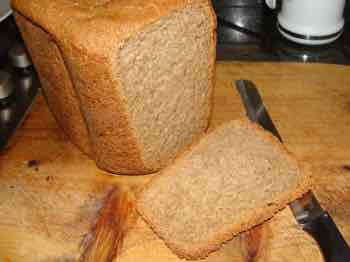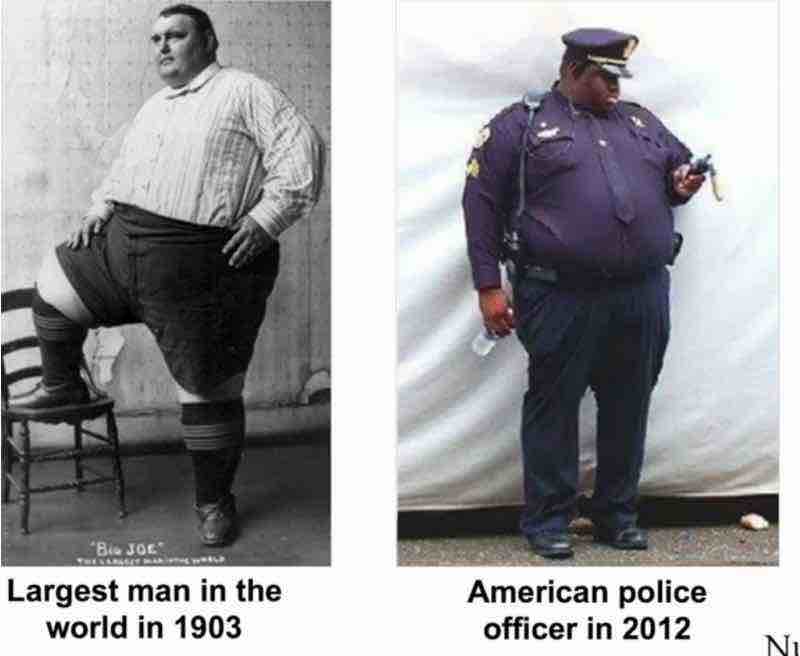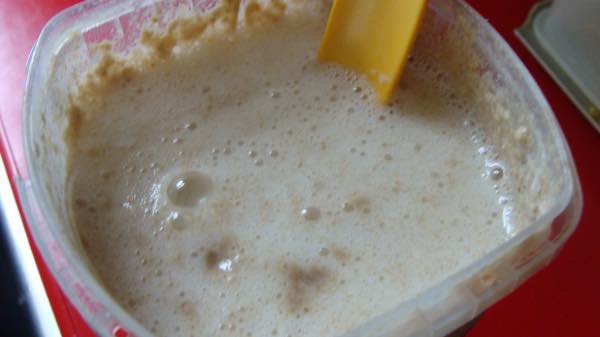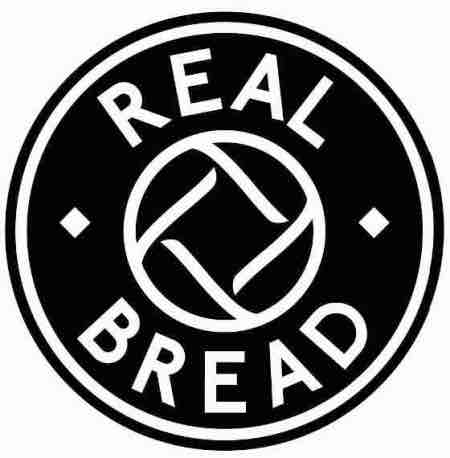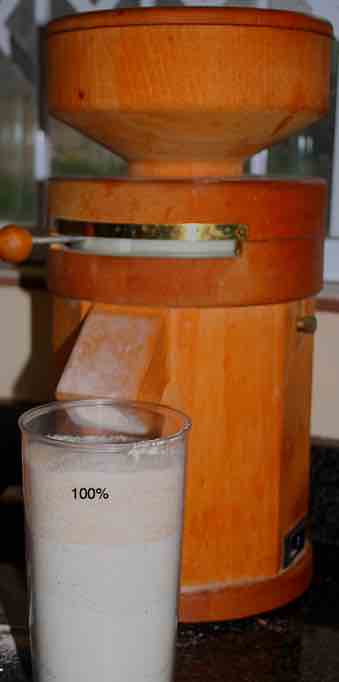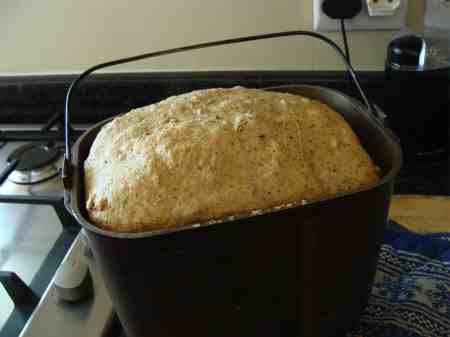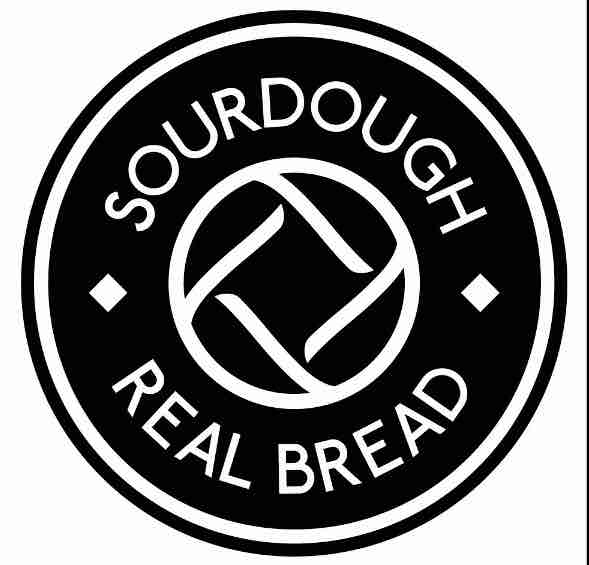| Back to Back Issues Page |
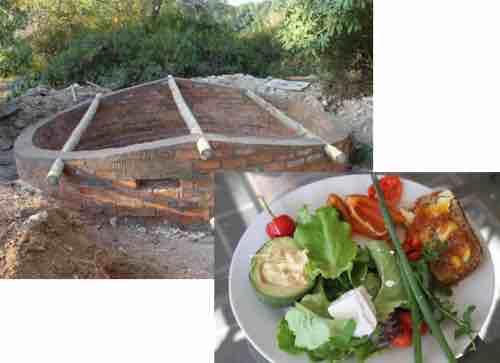 |
|
Bake your own sourdough bread April 10, 2021 |
DearBake your own sourdough breadGreetings from Bernard Preston to this seventeenth email about caring not only for your own family, but also for the planet. Our theme this month is why we should all bake our own sourdough bread. An 11 minute read; it will change your life.
There's an elephant in the room; we all know about it, but it's a subject we do not like to talk about, it's taboo, and we certainly have little idea of how to successfully go about dealing with it. I'm talking about obesity, of course. In 1980, 15% of Americans were obese; by 2000 it had risen to 30%, and in 2020 it had accelerated to 40%. In my own native South Africa it is only slightly less, and amongst women is actually worse. The McGovern Senate Select Committee on Nutrition gets much of the credit by turning Americans to a diet that leaves them constantly hungry; low in animal fat and high in refined carbohydrate. Which is the great enemy: cholesterol, or sugar and refined flour? I am not going to belabour the fact; we know we are overweight, and we do know what it's doing to our health. But we just do not know what to do about it. We've tried the diets but, constantly famished, are unable to stick to them, and we have read that after one year, a survey of ALL diets show that over 95% of us have not lost a pound, and many have actually put on. In appreciation to the Nutrition Network for this photograph.
I think it's probably true to say that virtually all of these diets tell you that you have to give up bread; for ever. But it is simply not sustainable; that is why they don't work. Bread is so central to our culture, whether it is the staff of life, I am the Bread of Life, and hundreds of other references to our daily loaf. The good news is that you actually don't have to give up bread for ever, though you will have to quit all starches, even the good ones, for a period if you need to lose a substantial amount of weight. Blue zone folk are not obese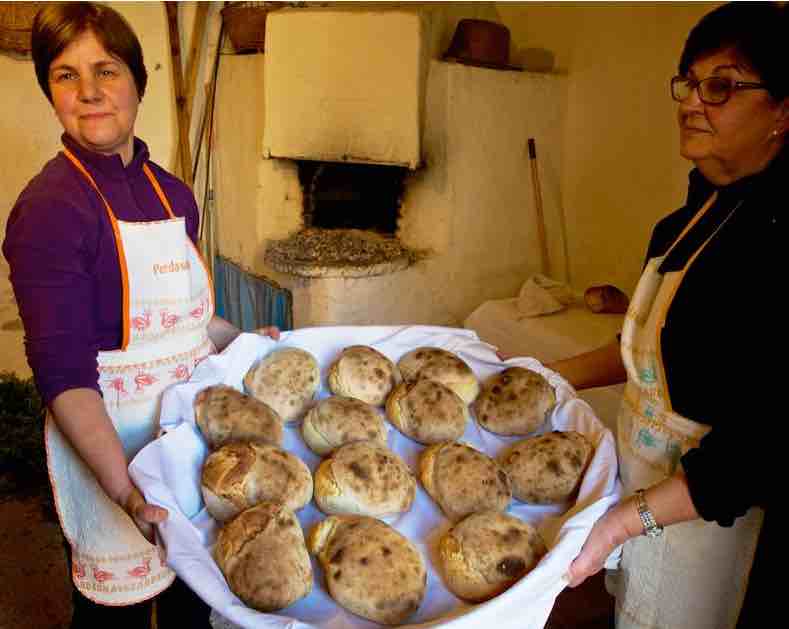
In the five blue zones of the world, Ikaria, Sardinia, Okinawa, Loma Linda in California and the Nicoya Peninsular of Costa Rica, there is very little obesity. Ten times as many people reach healthy, vibrant old age. And they eat a lot of bread. Take note of these waistlines and how much they love their bread. But it is not commercial bread; it's sourdough and they bake it at home.
What's different about sourdough?
The grain is fermented by natural yeasts in the bran and an added raising agent, the 'levain', containing natural lactic acid bacteria. All the research says that whole grains are the good stuff and we don't need to shun it. But supermarket bread? Give it up for ever if you want to live long in the land. Can you have your bread and eat it? Yes, but it must be sourdough. It's very expensive if you are going to buy it, made the traditional way, because the process is long-winded and labour intensive. Is there a shortcut that doesn't detract from the nutrition? Yes! But what is real bread?
'Real' breadThere are two steps to enjoying bread utterly without guilt, knowing that it will contribute to better health, and not drag you down into obesity and the attendant ensuing nasty conditions.The first step is the easy one; bake your own sourdough bread. It takes me only five minutes every morning, but I do cheat a little; see lower down for a discussion of this point. The second is a lot more difficult; you need 100% wholemeal and that involves buying a wheat grinder, and they are expensive. The good news is that you can bake your sourdough loaf for around half a dollar, six rand in South Africa, and you will pay it off in one year if you are buying artisan bread daily. Both steps, if you are you are going to keep it simple will involve a bread machine. It is officially the most underused appliance in the kitchen, so you can pick them up secondhand for a song. That should introduce a cautionary note; why are bread machines the most underutilized appliance? I would suggest three possible reasons. Firstly the fad diets doing the rounds condemning all bread outright; folk are eating much less bread. Secondly because people are not prepared to go the extra mile and make real sourdough, despite the fact that it is so simple, and thirdly because it tastes so good you will be tempted to eat too much. These are all valid factors and need to be considered before embarking on plans to start baking. Is it sustainable for you? If not, don't start obviously. Then you just have to give up all bread forever, if you want to be healthy.
100% wholemeal flour
The healthgrain project[1] of 2014 points out that "in most countries no legally endorsed definition of wholegrain flour and products exists." Misinformation is rife with lower amounts of bran to make better performance in baking, and the germ which has 'high economic value' and can be sold at great profit. In many cases no regulation at all exists. Two kinds of millingStonemilling as we promote means that there is no separation of the different streams; the bran, germ and endosperm are still in the exact ratio of the original grain.Freshness however is vital; once the grain is cracked and oxygen starts its work, the fats begin to go rancid. So you won't find it on the shelf in the supermarket. Yes, I mean that. You have to have your own mill; or a friend with a mill. By far the greater practice is to separate the three streams, treat the germ with heat to destroy the enzymes, and then reconstitute the fractions. This is what you will find on supermarket shelves if the miller doesn't cheat. The healthgrain project seeks to enforce that, to be called wholemeal, the three streams must be in the exact same natural ratio as the original kernel. And that packed foods will be labelled as xx% wholegrain wheat flour. Largely however this is not enforced and food manufacturers use many forms of duplicity to confuse and con us. Vitamin EThe vitamin E listed in the ingredients will often give you some idea of the deception. For example, Kellogg's Frosted Mini-Wheats claim to have been made from 100% wholegrain, yet there is a gaping hole in the list.It's a class I junk food with 20% added sugar. Salt too; wheat flour contains 2mg sodium / 100 g but these Mini-Wheats have ten times as much. And there's no vitamin E, so some of the oils have been extracted, or mistreated. One of the most important reasons for baking your own sourdough bread is the vitamin E. Renowned pioneer cardiologist Dr Wilfrid Shute, states that heart attacks were almost unknown prior to the milling of wheat; vitamin E is nature's natural anticoagulant. "Vitamin E-induced enhancement of immune functions has significant clinical implications as evidenced by the findings that vitamin E supplementation is associated with increased resistance to respiratory infections in both aged mice and older adults."[2] CheatingHaving weighed all these factors, acknowledging the way sourdough bread has been baked for literally thousands of years, I still came up against the big stumbling block; it takes a lot of time for the baker, and is thus expensive to buy, and difficult for you. It's a two day process.Is there a way of shortening the process without spoiling the basic nutrition of your daily loaf? Many ardent bakers would say no; you simply can't use added yeast and still call it artisan bread. And you should not use a bread machine; it just is not cricket. It's cheating. So, are we prepared to cheat just a little, and I don't believe it affects the nutritional value at all, or are you going to give up bread for ever? For me, it's a no brainer. Add yeast, and use a bread machine. We have accepted Twenty20 and ODI cricket; can we get used to the idea of a beautiful nutritious loaf taking less than ten minutes to grind the flour, mix the sourdough and bake it in five hours? Bread that tastes so good, naturally rich in vitamins, minerals and all the fibre, that you will find yourself reluctant to layer it with processed meat or jellies. It's not fattening, and it will not give your blood glucose a surge; call it slow release energy, if you like. This is one of the reasons why Blue Zone people are not obese and live so much longer. You really can have your bread, and eat it.
Three options1. Give up all bread, cookies and cakes for ever.2. Purchase sourdough bread, rightfully at significant cost. 3. Buy a mill, find a source of wheat, and bake your own bread; it takes less than ten minutes to grind the flour, add the sourdough culture, salt, dried yeast, honey and water. To get a really good ferment, allow it time for the yeasts and bacteria to do their work before baking. Voilà, you have the best bread in the world. I'm not exaggerating. "Bread is often avoided by those affected by weight-gain and metabolic syndrome – rightly, perhaps, in the case of industrial white loaves with a high glycemic index (GI). But sourdough lactic acid bacilli produce organic acids that, under the heat of baking, cause interactions that reduce starch availability. "
— Andrew Whitley
ElectricityIf you have the time, by all means learn to knead the dough, it is good exercise, and use your regular oven. It's one less appliance to clutter up your kitchen. But it does take a lot more electricity. Blue Zone people would probably use a Dutch oven heated with firewood.In Cyan zones, caring not only for ourselves but also the environment, we promote the use of a bread machine that saves you a lot of time and uses far less electricity. Better still, power it using a solar generator.
"Real bread is passion. It’s where I get my excitement from – pulling a perfect bread out of the oven. And each oven is different – it’s like a woman; different curves, hot spots. With every oven you learn to bake again. It’s a slow, nurtured and cared for process. And patience. None of this over the counter stuff." - Jason Lilley Melissa NorrisThere are a lot of bakers around the world ready to help you get started. Melissa Norris is one of them. She's a very experienced homesteader with a wealth of knowledge about sourdough.
Bake your own sourdough bread
To sum up, of you want to do this properly, and I recommend no other way, start baking sourdough bread using home-milled 100% wholemeal. Less than ten minutes a day. Half a dollar for the best bread in the world. That's what is now being called 'real bread'; a loaf that won't make you fat, is rich in fibre to keep your tum happy, and high in vitamin E and tastes so good you'll never go back to commercial bread. Did you know that cardiovascular disease is the number one scourge in the world? We desperately need these natural anticoagulants from our food; protects your blood vessels. There is early research suggesting less of a bad coronavirus experience too; more work needs to be done for conclusive proof. Olives and sunflower seeds are good too.
Start cooking! Sourdough keeps much longer, by the way, and freezes well.
"On the outskirts of every agony sits some observant fellow who points."
- Virginia Woolf
GlutenSourdough deals with the gluten issue. The bacteria and wild yeasts predigest the protein lessening the likelihood of the damaging short chain fragments that provoke an immune response.A longer ferment will be necessary, and for Coeliacs they may have to choose specific grains.
Unchlorinated waterContinuing on the water theme from last month, only bake your own sourdough bread using unchlorinated water, or it will kill those bacteria and fungi that are fermenting the dough.To sum upWhen one reaches your eighth decade, and the good wife too, and neither of you take any medication whatsoever, and haven't consulted a medical doctor in over a year, people start to ask what is the formula?Baking our own sourdough bread is certainly an important part of the mix. The kefir probiotic is central as well, and our love of many coloured fruits and vegetables every day. We do both regularly have our spines adjusted, and that means no necessity for anti-inflammatory pills and painkillers; that and our generally active lifestyle must come into the equation also.
"The truth was obviously healthier for me, but the lie tasted better." — JIM BAUM
That may be true of many health foods, though I contest it, but certainly isn't the case with real sourdough bread; the rich flavour is astonishingly good. You'll NEVER go back to commercial bread. 1. The HEALTHGRAIN definition of ‘whole grain’. Web: https://www.ncbi.nlm.nih.gov/pmc/articles/PMC3915794/ 2. Vitamin E, Immune Function, and Protection Against Infection. Web: https://link.springer.com/chapter/10.1007/978-3-030-05315-4_26
Next monthNext month we continue to look at the small things we can do to protect both ourselves and the planet from the ravages of disease and pollution.
Till next week, Bernie
Create a cyan zone at your homeClick here to return to the home page and subscribe to this newsletter, if you have not already. Care for the world, look after your family.It is simple to deregister if you later find it boring or irrelevant. Don't spam, but please forward to a few selected friends who you think might be interested in sitting under the trees they once planted, sipping tea and watching the great-grandchildren growing up.
x Alternative types of water storage x Wear your clothes out x Comfort foods x Create a bee-friendly environment x Go to bed slightly hungry x Keep bees x Blue zone folk are religious x Reduce plastic waste x Family is important x What can go in compost? x Grow broad beans for longevity x Harvest and store sunshine x Blue zone exercise x Harvest and store your rainwater x Create a cyan zone at your home |
| Back to Back Issues Page |
